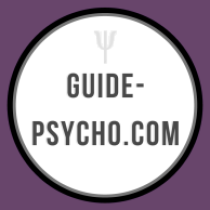Psychomotricity in geriatrics
Translated by Amélie Jayet
Psychomotricity management in geriatrics depends on the type of Healthcare Institute:
- Day hospital: The work is focused on reeducation, rehabilitation, by stimulating and preserving the patients’s abilities;
- In Elderly Institutes (EHPAD in France): the support is global and takes place on long term;
- In Mobile Medical Unit : the time available is short for the psychomotrician, and the main goal is home support
In all cases, the psychomotrician support always aims to listen and observe the physical and psychic symptoms and behaviors of the patient, to put words on them and understand their meaning. This helps to create a trusting bond with the patient, to communicate with him and to help him better in his difficulties. The patient must be considered globally: it is indeed to give him a sense of unity.
The goal is also to give the patient an access to his physical sensations to make him feel his body and live in it, while developing his skills. Valorization will increase confidence and, as a consequence, will develop the patient's self-esteem. The psychomotrician support finally offers a space of talking, listening and relational care.
In Day Hospital, the objectives are more specifically focused on:
- Motor rehabilitation (post-falls, walking, balance, posture, praxis)
- Sensory-motor skills (proprioception, kinesthetic, tactile sensations, breathing, axis, back)
- Psychomotrician therapy (cognitive and motor stimulation, general dynamic and fine coordination, relaxation, relaxing, therapeutic touch).
Besides, supporting the family is also essential. In fact, families can find themselves disarmed to deal with relative’s symptoms. It is important to advise them and help them for a better understanding and managing of their relative’s suffering. You should also offer them a listening ear so they can express their own feelings of caregivers and their possible difficulties. The interdisciplinary exchanges are also relevant: they allow to gather the points of view of each professionals and think about the best possible care adapted to the patient. The psychomotrician’s role is to highlight and explain the best practices to this population (touch, verbalization).
Psychomotrician's role in geriatrics
Through listening and a particular empathy ability, the psychomotrician creates a specific bond with the patient. He helps the patient to give words and meanings to his symptoms. It's about bonding a relationship with the patient to give him the feeling of a “continuity of existence”. Through his actions (sensor-motricity stimulations) and his referent status (Regular meeting : spatio-temporal aspect), the psychomotrician "brings life" and coherence to its patients.
His role also consists in the production of an assessment to highlight the patients' psychomotor abilities at one point, and to make hypothesis on their evolution as well. Those assessments are necessary to set up the most appropriate therapy.
He has, furthermore, a supportive and reinsurance role, and put forward the
strong points and the weaknesses which need to be worked on. The patient isn’t always aware of his weaknesses and his competences. The psychomotrician lets the awareness and the acceptation of this
“new” body.
(Importance of questioning around the mirror in the psychomotor room: some patients do not recognize themselves.)


